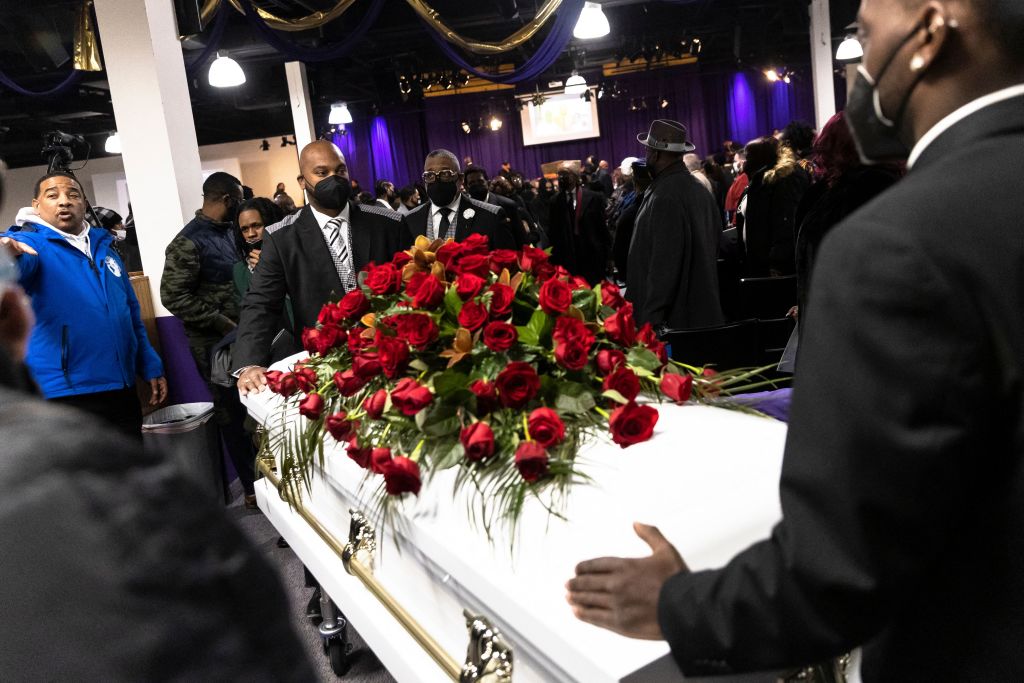by C.C. Campbell-Rock
Everyone agrees that no knock warrants are dangerous. No knock warrants are often deadly.
The right of the people to be secure in their persons, houses, papers, and effects, against unreasonable searches and seizures, shall not be violated, and no Warrants shall issue, but upon probable cause, supported by Oath or affirmation, and particularly describing the place to be searched, and the persons or things to be seized.
Fourth Amendment of the US Constitution
Are no knock warrants even constitutional?
The Fourth Amendment, ratified in 1791, is based on the principle that “Every man’s house is his castle,” and that any citizen may fall into the category of the criminally accused and ought to be provided protections accordingly.
“Our nation has lately been made painfully aware of the risks of police executing “no-knock” search warrants. They pose serious risks to the lives of innocent citizens, like Breonna Taylor in Louisville, Kentucky; and to the lives of law enforcement officers charged with executing them,” Louisiana Supreme Court Justice Bernette J. Johnson wrote in a dissent in State of Louisiana vs. Patrick Vanlangendonck.
“The language used to request advance “no-knock” permission is often boiler-plate. It encourages only cursory review and—once issued—may reduce meaningful retroactive scrutiny of whether the circumstances truly justified law enforcement’s departure from the Fourth Amendment,” Johnson wrote two months before retiring from the bench in December 2020.
“Advance “no-knock” authorizations in search warrants should be an aberration, not the norm. We risk the lives of our law enforcement officers and our fellow citizens if judges do not vigilantly guard the standards for “no-knock” warrants. Where issued in advance, “no-knock” warrants should be based on articulable facts specific to the planned search, not a boiler-plate request when officers suspect illegal narcotics,” Johnson wrote.
In a telephone interview, Johnson said, “No-Knock warrants go against the constitutional protection to be safe in your house.”
“It breaks your heart,” Johnson says of the Breonna Taylor case. She adds that blacks are under “constant threats” of police violating their constitutional protections. “Driving, walking in the mall, sleeping in your home while black…there’s always the latest name.”
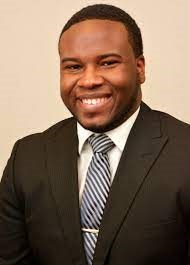
In fact, it seems that the Fourth Amendment doesn’t apply to black people. The use of search warrants, No-Knock warrants, and no warrants, period, by white law enforcement officers have proven dangerous and deadly for unarmed black people:
September 6, 2018 – Botham Jean, 26, a young black PricewaterhouseCoopers accountant, was sitting on his couch watching television and eating ice cream when Amber Guyger, a white Dallas police officer, mistook his apartment for her own. She pushed opened the door and killed Jean where he sat. Guyger didn’t have a warrant.
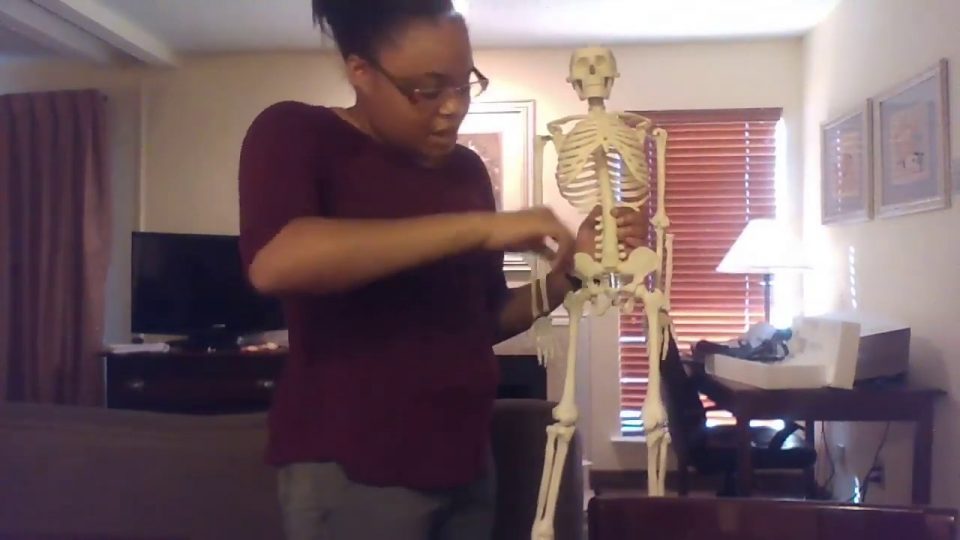
Victims List is Long
October 12, 2019- Atatiana Koquice Jefferson, a 28-year-old black woman, was shot to death in her home by Aaron Dean, a white police officer in Fort Worth, Texas. Police arrived at her home after a neighbor called a non-emergency number, stating that Jefferson’s front door was open. Police body camera footage showed officers walking outside the house with flashlights for a few minutes before Dean shot through a window and killed her.
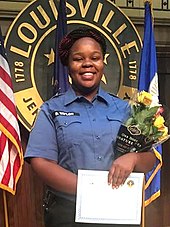
March 13, 2020 – Breonna Taylor, 26, an Emergency Medical Technician, was sleeping in her Louisville, Kentucky apartment when three white police officers, Jonathan Mattingly, Brett Hankison, and Myles Cosgrove of the Louisville Metro Police Department (LMPD), forced entry into the apartment as part of an investigation into drug dealing. The plainclothes cops said they announced themselves, but Taylor’s boyfriend denied hearing them before the police kicked in the door. They killed the unarmed black woman. Her apartment wasn’t searched. More proof no-knock warrants are dangerous and deadly.
February 3, 2022 – Amir Locke, 22, didn’t get a chance to answer his cousin’s door. No one knocked. Minneapolis Police entered the apartment with a key. Once inside, their screams woke Locke up. Locke probably thought intruders had come through the door, so he pulled his registered gun from under the covers to defend himself. Locke, 22, died in a hail of bullets. The No-Knock warrant wasn’t for Locke, who was couch-surfing at a friend’s apartment.
Locke’s grieving parents are calling for a ban on No-Knock warrants. The parents and their lawyers say the 22-year-old Black man was “executed” by police in Minneapolis, Minnesota. They say No-knock warrants are dangerous and deadly.
Dawnita Hodge is still traumatized by her No-Knock experience. Twenty-five years ago, fellow police officers burst into her Hammond, Louisiana home while she slept.
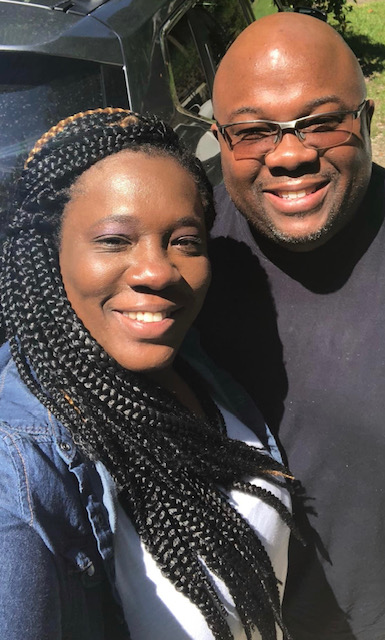
Hodge, a police officer and juvenile detective on the Hammond Police Department, recalls, “I was sleeping. It was about 4 p.m., and I was napping before I had to go on duty. “Bam, Bam, Bam,” is the sound she still hears. “I didn’t know what was going on. I heard shouting.”
Before Hodge could respond, the cops were in her bedroom with guns drawn. “I was in my bra and panties. I was told to get on the floor and handcuffed. And I was asked where my service weapon was; then they went searching my house.”
As it turned out, an informant told the Hammond police that her brother was coming and going from her home and her colleagues suspected he was dealing drugs.
Eugene Hodge, Jr., was living with her at the time. “He was trying to decide whether to move to Houston or not,” she explains. They had relatives in Houston.
“I’ll never forget. It was December 6, 1996,” Eugene explains. I had come from visiting relatives in Houston for Thanksgiving. To this day, it sends chills down my spine,” Eugene Hodge Jr. says of his encounter with the cops.
Related: Breonna Taylor and Systemic Racism
Eugene wasn’t there when the police knocked the door down. He had gone to see his friends’ new baby. “When we came back, they said, “Get on the ground. Where’s the dope? Where’s the money? When they couldn’t find anything, one police told me, ‘It’s best you leave town and don’t come back here.”
“I had nowhere to go, so I started coming and going in the wee hours of the night because I was scared.’ Eugene moved to Texas and stayed away for two years. ‘The only reason I came back was my girlfriend was about to have my child,” he explains.
But whenever he and his cousins came home to visit, undercover state police would stop them. “It was straight harassment. It was ridiculous.”
“What if I had gotten to my gun? I’d be dead right now. I think it was excessive,” Dawnita says of the raid. “We had no criminal history. We’re law-abiding citizens. They could have called me into the station.”
Dawnita refused to leave the job, even after the harassment. “It was hard to stay,” she confirms. When someone sent her the brain of a cow, Dawnita hired civil rights attorney Ron Wilson who sued the Hammond Police Department.
No-Knock Warrants are dangerous and deadly
“Yes, racism was involved,” Dawnita responds when asked if she thought her fellow officers were singling her out because she’s a black woman. “Based on who I know Chad Scott is now, he locked so many black people away. I think he was a racist, yeah. Scott led the team that executed the No-Knock warrant.
“I told them that Chad Scott was dirty,” Attorney Wilson says of his conversation with Hammond Police Department leadership. Look him up,” he adds.
Indeed, Scott is a corrupt law enforcement officer.
Scott, a DEA officer, was sentenced to 13 years in prison for two charges related to accusations that he took the property of arrestees for his personal use and seven charges of perjury, obstruction of justice, and falsifying government records.
Dawnita Hodge left the Hammond Police Force. Today she is the regional manager for the Office of Juvenile Justice.
Cops have terrorized Hodge and all the others mentioned in this article by serving No-Knock warrants.
“People have a right to protect homes. You have a right to keep police out,” says Jacques Morial, a political consultant.

In 2004, Morial was the victim of a federal search warrant. Seven seconds after announcing themselves, police rammed down his door. “Someone told them I was a mastermind bag man and that I had $100,000 in my house,” Morial says.
“There was no specificity” in the warrant,” Morial adds. About 10 feds came in with handguns and assault weapons. “They were ripping up my carpet, looking for a wall safe, and punched my walls in looking for money.” As in the case of the Hodge family, they didn’t find any money in Morial’s home.
Morial says search warrants are dangerous. He agrees with Hodge that there are better ways to apprehend criminals. “Do some intelligence. Find out when the suspect comes and goes. If you cut off the lights and water, eventually a suspect will come out. I think No-Knock warrants should only be used in cases of national security and suspected terrorism.”
In the wake of Breonna Taylor’s death, several states passed restrictive No-Knock warrant laws.
Governor John Bel Edwards signed ACT 430, based on State Senators Cleo Fields and Troy Carter’s legislation, in June 2021. The law restricts the use of chokeholds, and No-Knock warrants can only be served between sunrise and sunset. The legislation also calls for all police to wear body cameras.
Sadly, ACT 430, like many other “new” No-Knock warrant laws, has loopholes large enough to drive a truck through. The procedure can still be used under certain circumstances. The same goes for the 2020 federal laws on which the rules are based.
The penchant of white cops to shoot first and ask questions later, when blacks are in their homes and suspected of criminal activity, is well-documented. Clearly, the Fourth Amendment—the Castle Doctrine—doesn’t apply to black people.
“In the period from 2010-2016 alone, this policy (No-Knock warrants) caused the death of 81 civilians and 13 officers, more than half the civilians being minorities, most of whom were Black. Criminologist Radley Balko estimates that 8 “perfectly innocent” citizens each year die from these raids, along with 20-30 others who are either police officers or suspects. A first step in turning things around would be to abolish No-Knock warrants in this country from coast to coast,” according to The No-Knock Warrant and Its Origins in the Race-Baiting Politics of the Law and Order Movement, a University of Hartford Report.
At least four states — Florida, Oregon, Connecticut, and Virginia — have banned the no-knock warrants. The rest of the United States should do the same. We all see that no-knock warrants are dangerous and deadly.

